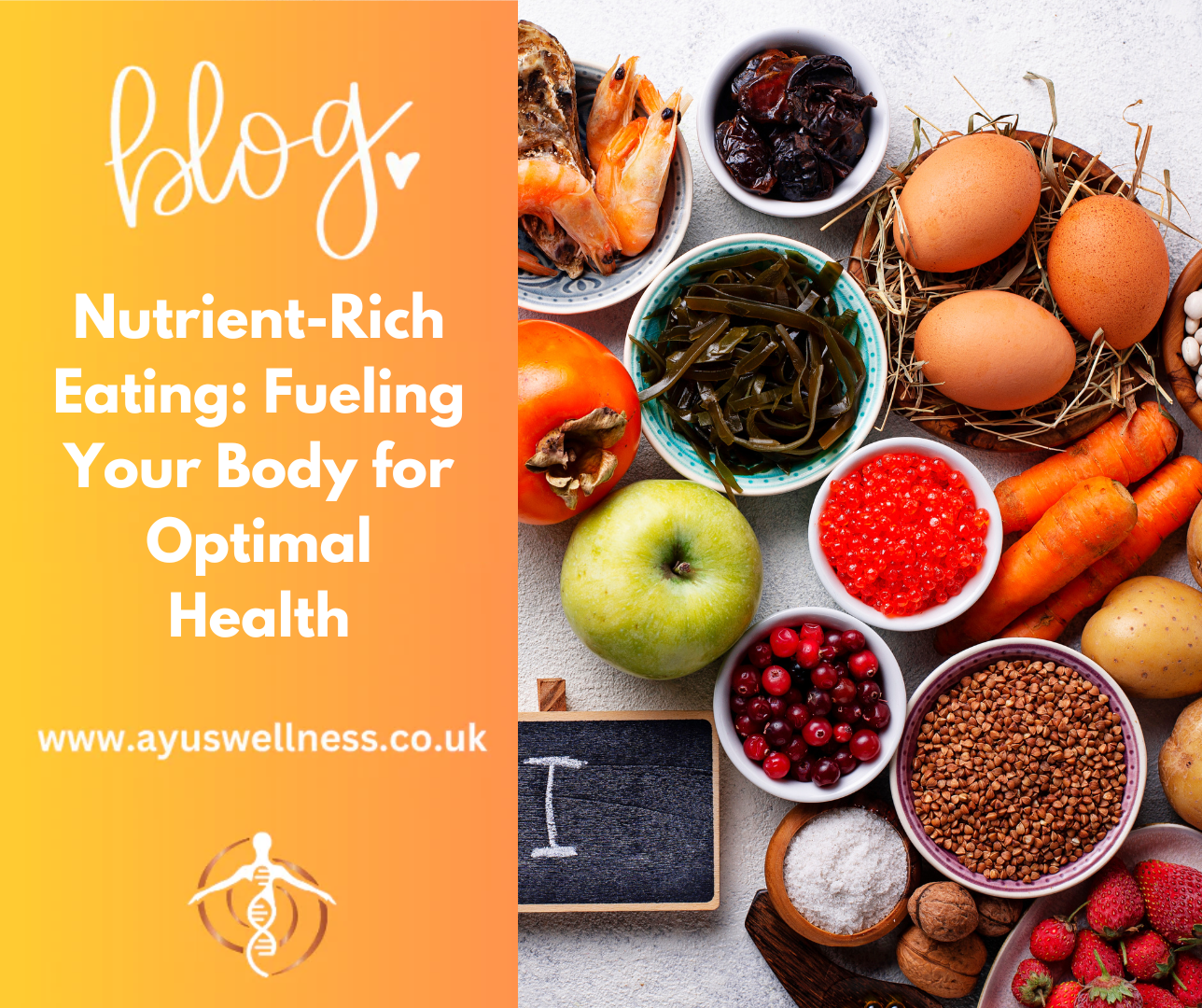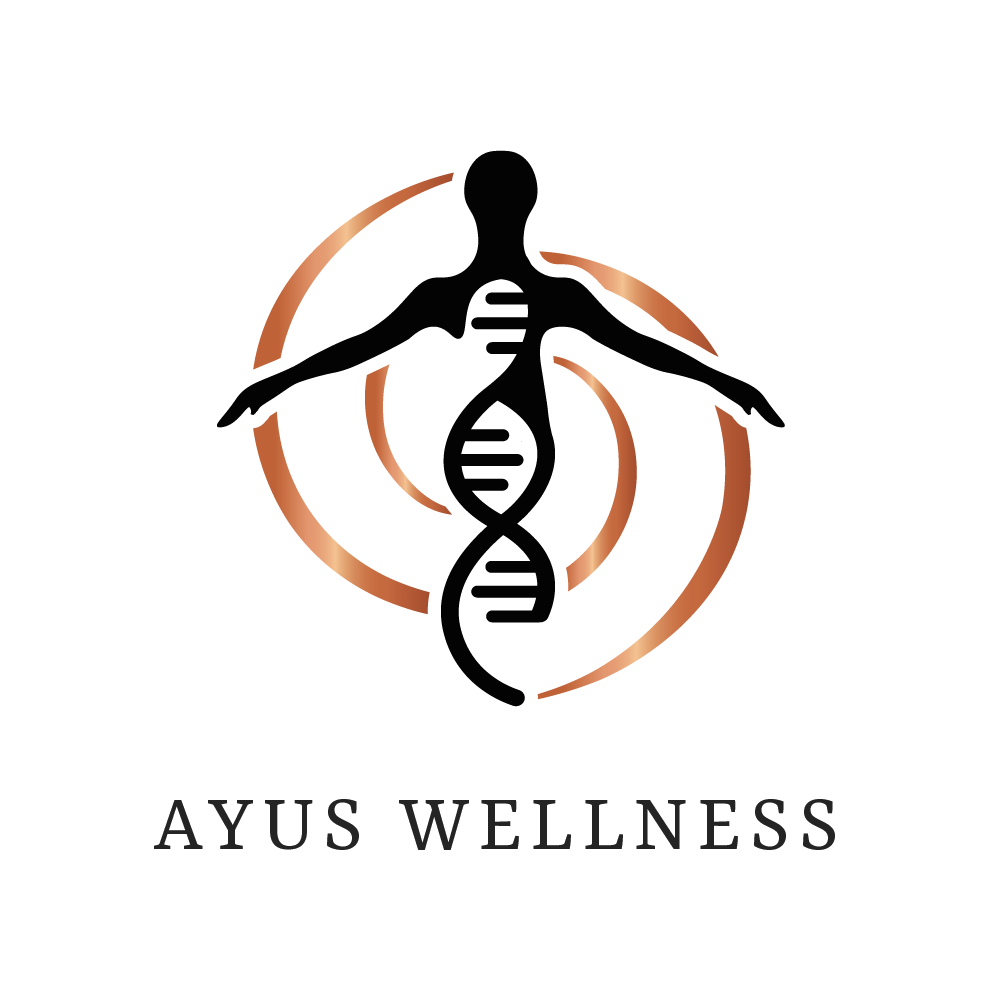
The Importance of Nutrient-Rich Eating
Nutrient-rich eating provides numerous benefits for your health, including:
1. Enhanced Energy Levels
Nutrient-dense foods provide the essential vitamins and minerals your body needs to produce energy. Eating a balanced diet rich in these nutrients helps maintain steady energy levels throughout the day.
2. Improved Immune Function
A diet high in essential nutrients supports a healthy immune system, helping your body fight off infections and illnesses more effectively.
3. Better Digestive Health
Nutrient-rich foods, particularly those high in fiber, promote healthy digestion and regular bowel movements, reducing the risk of digestive disorders.
4. Reduced Risk of Chronic Diseases
Eating a diet rich in nutrients can help prevent chronic diseases such as heart disease, diabetes, and certain cancers. Nutrients like antioxidants, fiber, and healthy fats play a key role in disease prevention.
5. Optimal Weight Management
Nutrient-dense foods are typically lower in calories but higher in essential nutrients, making them ideal for weight management. They help you feel full and satisfied without consuming excessive calories.
Key Nutrients to Include in Your Diet
Incorporating a variety of nutrient-dense foods into your diet ensures you get a wide range of essential nutrients. Here are some key nutrients to focus on:
1. Vitamins
- Vitamin A: Supports vision, immune function, and skin health. Found in carrots, sweet potatoes, and leafy greens.
- Vitamin C: Boosts immune function and acts as an antioxidant. Found in citrus fruits, strawberries, and bell peppers.
- Vitamin D: Supports bone health and immune function. Found in fortified dairy products, fatty fish, and sunlight exposure.
2. Minerals
- Calcium: Essential for bone health and muscle function. Found in dairy products, leafy greens, and fortified plant-based milks.
- Iron: Supports red blood cell production and oxygen transport. Found in lean meats, beans, and spinach.
- Magnesium: Involved in muscle and nerve function, and energy production. Found in nuts, seeds, and whole grains.
3. Fiber
Fiber promotes digestive health, helps control blood sugar levels, and supports weight management. Found in fruits, vegetables, whole grains, and legumes.
4. Healthy Fats
Healthy fats are crucial for brain health, hormone production, and overall well-being. Found in avocados, nuts, seeds, and olive oil.
5. Protein
Protein is essential for muscle repair, immune function, and enzyme production. Found in lean meats, fish, eggs, beans, and legumes.
Practical Tips for Nutrient-Rich Eating
Here are some practical strategies to help you incorporate nutrient-dense foods into your diet:
1. Fill Half Your Plate with Fruits and Vegetables
Aim to fill at least half your plate with a variety of colorful fruits and vegetables at each meal. This ensures you get a wide range of vitamins, minerals, and antioxidants.
2. Choose healthy fats
Opt for health sources of fats, adding things like olive oil, avocados, macadamia, oily fish and eggs all of which are very nutrient dense. Avoid using vegetable oils, particularly during cooking (rapeseed, sunflower, canola etc).
3. Include Lean Proteins
Incorporate lean protein sources such as beef, fish, beans, and legumes into your meals. These can provide the essential amino acids your body needs for growth and recovery.
4. Snack Smart
Choose nutrient-dense snacks like nuts, seeds, fruit, and yogurt instead of processed snacks high in sugar and unhealthy fats.
5. Limit Added Sugars and Sodium
Reduce your intake of foods and beverages high in added sugars and sodium. These can contribute to chronic health issues such as heart disease and hypertension.
6. Stay Hydrated
Drink plenty of water throughout the day to support overall health and hydration. Limit sugary drinks and opt for water, herbal teas, or infused water with fruits and herbs.
Sample Nutrient-Rich Meal Plan
Here’s a simple meal plan to help you incorporate nutrient-dense foods into your diet:
Breakfast:
- Greek yogurt with fresh berries, a sprinkle of nuts, and a drizzle of honey
- Sliced avocado and a poached egg
Lunch:
- Mixed green salad with grilled chicken, quinoa, cherry tomatoes, cucumbers, and a lemon-tahini dressing
- A piece of fruit (apple, orange, or pear)
Snack:
- Carrot sticks and hummus
- A handful of almonds
Dinner:
- Baked salmon with a side of steamed broccoli and sweet potato mash
- Mixed green salad with olive oil and balsamic vinegar dressing
Snack:
- A small bowl of mixed berries
- A glass of water or herbal tea
FAQs
Q: What are some examples of nutrient-dense superfoods?
A: Examples of nutrient-dense superfoods include blueberries, salmon, quinoa, and chia seeds. These foods are packed with vitamins, minerals, and antioxidants.
Q: How can I ensure I’m getting enough nutrients on a plant-based diet?
A: Focus on a variety of plant-based protein sources like beans, lentils, tofu, and quinoa. Include a wide range of fruits, vegetables, whole grains, nuts, and seeds to cover your nutrient needs.
Q: Can I still eat nutrient-dense foods if I have dietary restrictions?
A: Yes, you can adapt nutrient-rich eating to fit your dietary needs. Consult with a nutritionist to create a balanced meal plan that accommodates your restrictions while ensuring you get essential nutrients.
Wrapping It Up
Nutrient-rich eating is key to fueling your body for optimal health and well-being. By focusing on a variety of whole, nutrient-dense foods, you can support energy levels, immune function, digestive health, and weight management. Embrace these practical tips to incorporate more nutrient-dense foods into your diet and enjoy the benefits of a healthier lifestyle.



